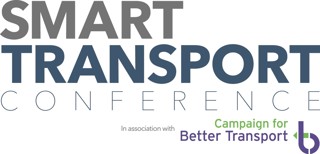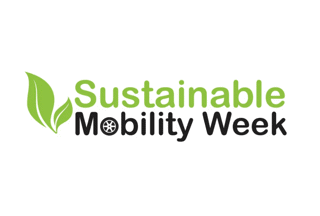Smart Transport Conference delegates will be able to hear from a range of experts in the field of future mobility, on September 18.
Among the key topics of discussion will be the move to connected and autonomous vehicles, including electrification of the current vehicle parc.
Outlining the key mobility challenges facing Government will be Bridget Rosewell, commissioner at National Infrastructure Commission.
She is an experienced director, policy maker and economist, with a track record in advising public and private sector clients on key strategic issues.
Her speech will focus on the recommendations outlined in the commission’s National Infrastructure Assessment and will outline how the country can transition to electric vehicles by 2030.
Roswell has worked extensively on cities, infrastructure and finance, advising on projects in road and rail and on major property developments and regeneration. She has been a member of Commissions looking at the future of public services, city finance, London finance, the North East economy, the City Growth Commission and the London Infrastructure Commission. She has also served as chief economic adviser to the Greater London Authority (2002 to 2012) and her book, ‘Reinventing London’, was published in 2014.
“A rapid switch to electric vehicles is feasible and desirable and it’s positive that government has committed to a national high speed charging network. Our Assessment shows just £10m of funding could deliver a core national rapid charging network through subsidising, by 2022, rapid chargers in rural and remote areas where the market won’t deliver in the short term,” said Roswell.
Laura Shoaf, managing director of Transport for West Midlands (TfWM), will outline how the West Midlands Combined Authority (WMCA) is harnessing emerging technologies and pioneering smart transport initiatives.
She has more than 25 years international experience in delivering integrated economic and spatial regeneration and is the first woman in England to lead a strategic transport authority.
TfWM is the driving force behind the development of integrated transport in the West Midlands. Shoaf is responsible for key initiatives across the metropolitan area such as the build and operation of the Midland Metro, the operation of the Key Route Network, producing the region’s Strategic Transport Plan, and working across all modes, including rail, metro and bus, to deliver new infrastructure and services.
Shoaf said: “The West Midlands is the home of mobility and some of the original innovative pioneers such as Boulton, Watt and Murdoch. However with success comes a downside and that is the region has become the home of the traffic jam.
“Our vision and role at WMCA is to overcome this unwanted label by driving economic growth in the region so that we can become a healthier, happier, better connected and more prosperous region using innovation in transport and technology to create sustainable ways of getting the region moving.”
The presentation identifies just some of the pioneering work being done in the West Midlands around Mobility as a Service, Connected and Autonomous Vehicle projects, 5G, Smart Ticketing, cycling and walking.
“We will use and build on these innovations along with significant investment in our core transport systems to restore the West Midlands to its rightful status as home of mobility and innovation,” added Shoaf.
Also presenting at Smart Transport Conference is Dr Daniel Ruiz, chief executive officer at Zenzic. He will talk about how the development of connected and autonomous vehicles will help the government overcome mobility challenges.
Ruiz is leading the UK’s £100 million connected and autonomous vehicle (CAV) programme.
Polly Billington, director of UK100, will outline how local leadership can make a difference on clean transport.
She was previously special adviser at DECC 2008-10 and Director of Communications on Sadiq Khan’s selection campaign to be Labour’s candidate for London Mayor. She devised and led the 100% London campaign, getting both Zac Goldsmith and Sadiq to commit to London adopting 100% clean energy.
The Smart Transport Conference is dedicated to connecting the policies set out by the public sector to the capabilities presented by the private sector through networking, knowledge transferring and debates.
The conference presents the key challenges and opportunities that potential delegates could face as a result of the changing climate and implication of UK's government policy, and the effects of new technological advancements on firms.
Using practical case studies, the conference will focus on real-world solutions to the key future mobility challenges facing central and local government across the UK and provides a roadmap towards practical, integrated transport solutions.
The Smart Transport Conference will take place on September 18 at the ICC Birmingham. For more information or to book a place, click here.




















Login to comment
Comments
No comments have been made yet.